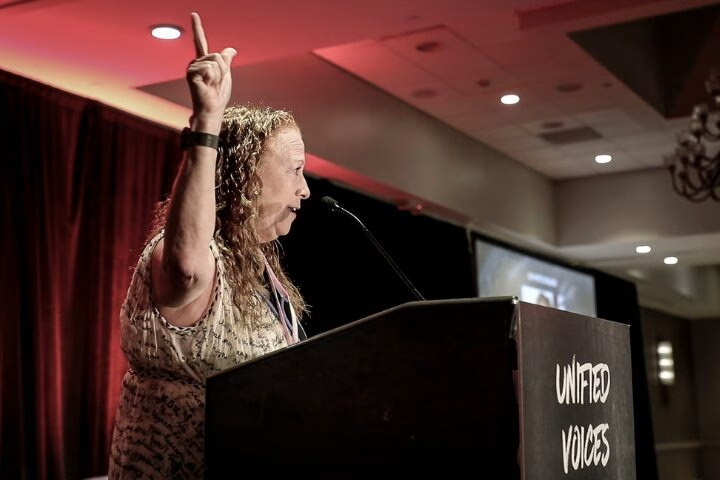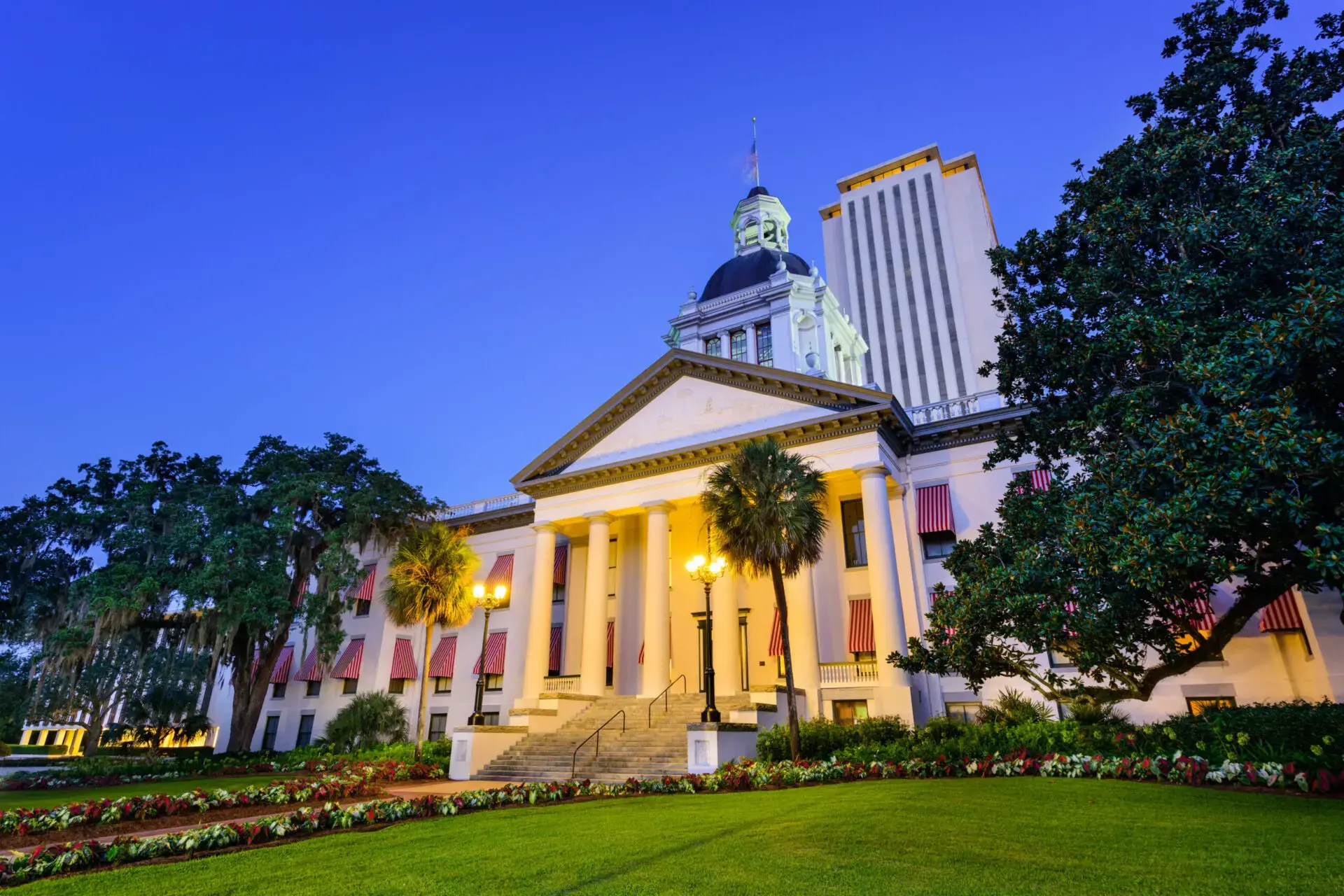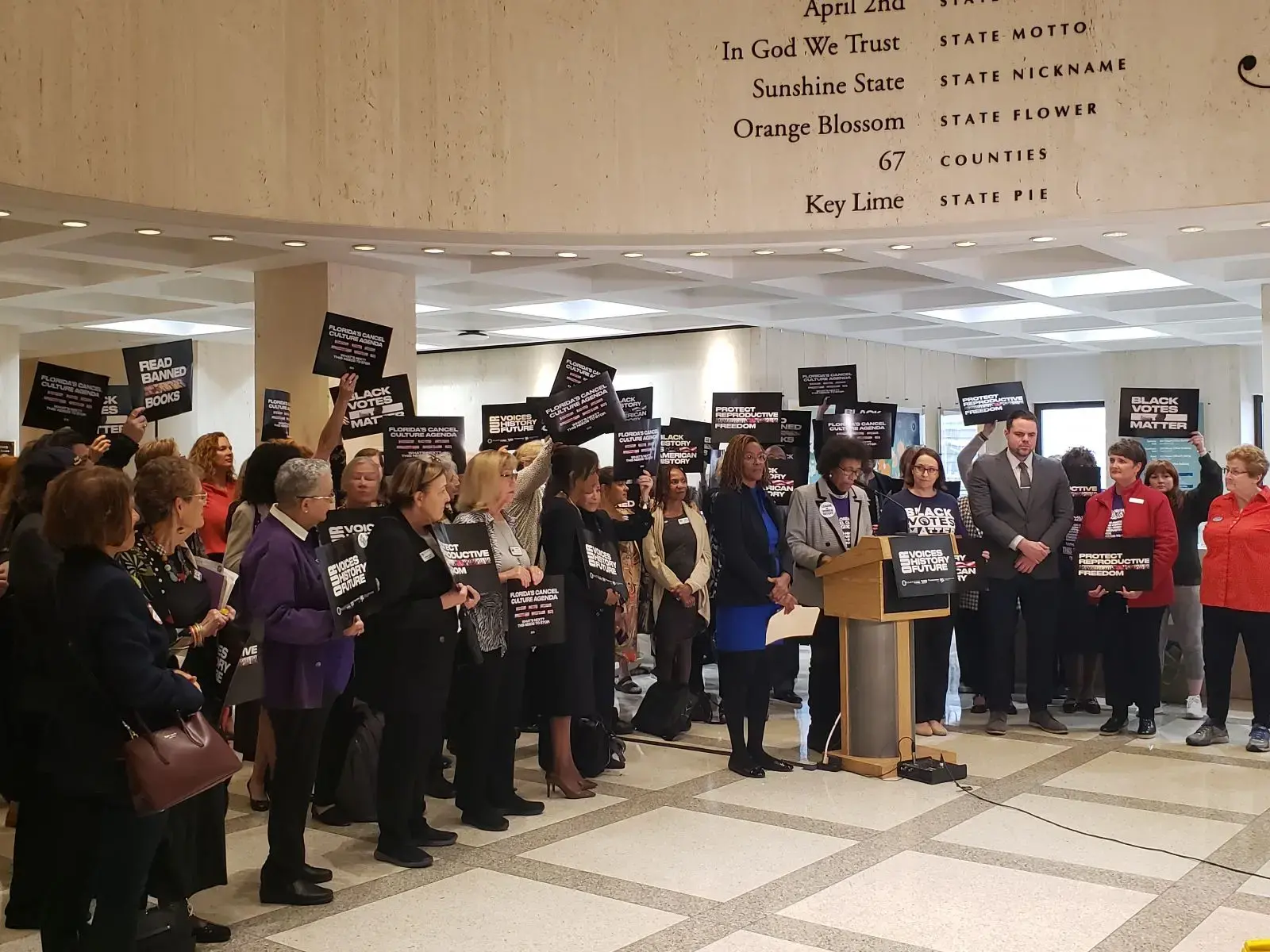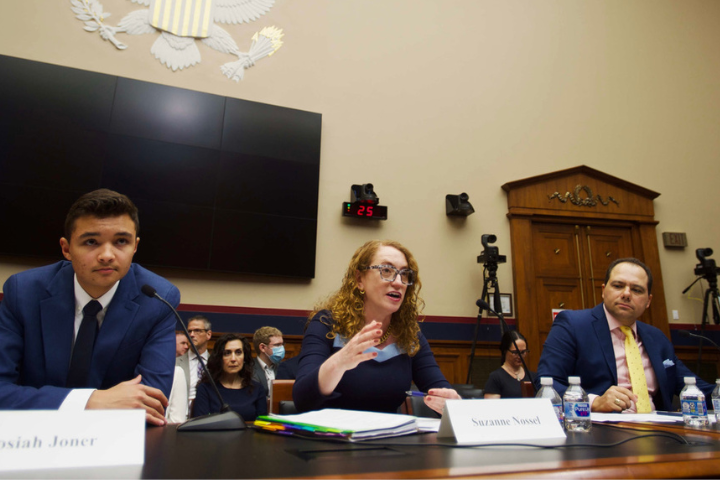This LGBTQ+ History Month recognizes the achievements of the community with celebrations, lectures and exhibits nationwide that pay tribute to notable Americans from Allan Horsfall to Edith Windsor. But students in Miami-Dade County, Florida won’t learn about these iconic figures because for the third straight year, the School Board voted to reject this recognition of queer contributions. This is a decision that should disturb anyone who values free speech and free expression, the bedrocks of democracy.
In 2021, Miami-Dade County School Board (M-DCPS) recognized this month of memory and celebration, along with neighboring counties who still keep this practice, such as Broward and Palm Beach counties.
But 2021 saw a sea change in Florida, with the beginning of what would become a tidal wave of state censorship from the DeSantis Administration and Florida legislature. These include laws such as HB 7 (the Stop WOKE Act) and HB 1557 (otherwise known as the “Don’t Say Gay” bill), which targeted classroom speech and instruction on issues regarding race, gender, and sexual identity. It also significantly fed the growing culture of fear and self-censorship in Florida classrooms as books, often featuring LGBTQ+ themes and identities and people of color, were yanked off the shelves and teachers shrouded classroom libraries behind blue crepe.
Finally, the courts have begun to push back against unconstitutional state policies. HB7 has been blocked from enforcement twice and an important settlement regarding HB 1557 has clarified that books and materials cannot be pulled simply for including or addressing LGBTQ+ themes and characters and that it is certainly not illegal to “say gay.” Yet the culture war at the heart of the state’s efforts wages on, with fights for basic rights of expression and speech contested hotly in local settings, and commonly, county school board meetings.
The state’s direct targeting of diverse and minority voices and perspectives has left a stain that is not so easily wiped clean, and instead empowers those who seek to censure and discriminate against viewpoints they find disfavorable, from the local level through the highest offices of state government.
The failure of the M-DCSP to acknowledge and protect all students within the district serves as a reminder that decisions, policies, and campaigns at the highest levels of state government have major impacts on local decisions and citizens’ lives.
This was on clear display at the Sept. 11 Miami school board meeting, where proposition H-10 was once again brought before the board. Prop H-10 is symbolic in nature and requires no changes or additions to classroom instruction or curriculum. Recognition is not even mandatory for schools, students, staff, or teachers.
It’s reasonable to ask then, why is this proposition controversial?
Prior to the settlement in HB 1557 (2022) opponents of the recognition could have argued that doing so could potentially violate the law. But after the legal settlement in March the bottom line is that references to LGBTQ+ identities, themes, and people are permitted in any context “outside of instruction”—they can be featured in books, classroom discussions, and students’ own academic work. With this settlement, there is no conceivable reason to uphold an environment of self-censorship that does not acknowledge the contributions of LGBTQ+ Americans, much less the existence of LGBTQ+ students in schools. To do so only furthers the state’s efforts to discriminate, censor, and erase viewpoints and identities it finds disfavorable. It fortifies the culture of fear that has led teachers and media specialists to self-censor and pull books with LGBTQ+ themes. And it will harm students, sending the message that LGBTQ+ identities are unwelcome.
The failure of the M-DCSP to acknowledge and protect all students within the district serves as a reminder that decisions, policies, and campaigns at the highest levels of state government have major impacts on local decisions and citizens’ lives. The state policies that have fed the culture war against LGBTQ+ voices and people of color has led to over 10,000 books banned in the 2023-2024 school year, with Florida retaining its status as the number one book banner in the country. Making our voices heard, through voting and civic engagement in local and state governments, is critical to pushing back against authoritarian and discriminatory tendencies, which not only impact the daily lives of Floridians, but serve as a blueprint for the rest of the country.
Katie Blankenship is senior director of PEN America’s Florida office and Sophia Brown is program coordinator for PEN America’s Florida office.









